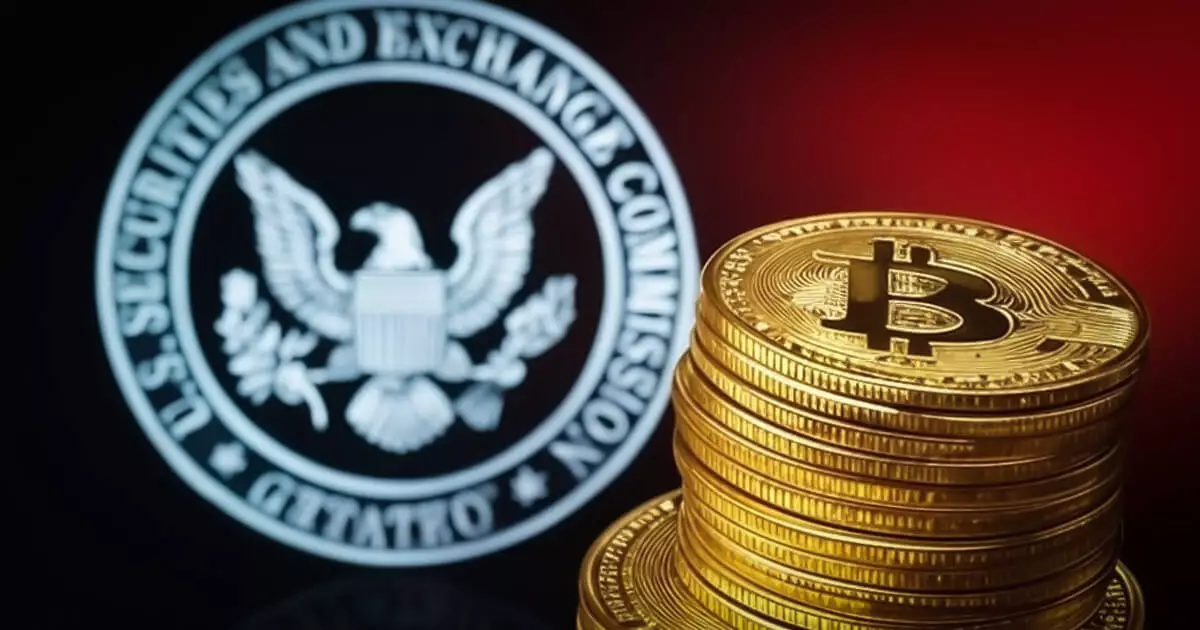In an era where the rapid evolution of digital currencies has outpaced existing regulatory frameworks, the U.S. Securities and Exchange Commission (SEC) has taken a significant step in addressing this gap. The establishment of a dedicated cryptocurrency task force, announced on January 21, is not merely a procedural development; it represents a paradigm shift in regulatory philosophy under the guidance of Commissioner Hester Peirce, affectionately known as “Crypto Mom.”
Historically, the SEC has relied heavily on enforcement actions to manage the complexities surrounding cryptocurrency assets. This method has often been criticized for its reactive nature and its tendency to introduce ambiguity through retroactive legal interpretations. Many in the financial community contend that such an approach stifles innovation and undermines the participation of compliant entities within the blockchain space. The creation of the task force signals a departure from this enforcement-centric mindset towards the establishment of a comprehensive, proactive regulatory framework.
The task force, which includes key figures such as Richard Gabbert and Taylor Asher, is tasked with the formidable responsibility of delineating clear regulatory boundaries. Their mandate involves crafting practical registration processes and disclosure frameworks that accommodate the interests of investors and market participants alike. According to Acting Chairman Mark Uyeda, this initiative aims to foster an environment where regulatory clarity enhances confidence, thereby promoting innovation rather than hindering it.
One of the defining features of the newly formed task force is its emphasis on collaboration. The SEC has communicated its intentions to work closely with various federal agencies, including the Commodity Futures Trading Commission (CFTC), as well as with state regulatory bodies and international counterparts. This cooperative framework is essential, considering the global nature of cryptocurrency markets and the cross-border challenges that frequently arise. By aligning regulatory efforts with global standards, the SEC aims to create a cohesive regulatory environment that promotes fair competition and participant protection.
Acting Chairman Uyeda’s statement reflects a desire for the SEC to move beyond a siloed approach. Instead, the task force will actively seek input from a diverse array of stakeholders, including industry professionals, investors, and scholars. This inclusivity is crucial, as it will ensure that the regulatory framework developed is comprehensive, balanced, and attuned to the nuances of the cryptocurrency landscape.
The task force’s role extends beyond mere regulatory oversight; it is also set to provide technical assistance to Congress. This proactive measure will enable lawmakers to make informed decisions as they consider updates to the legal framework governing digital assets. By offering insights and recommendations within the existing statutory structure, the task force aims to bridge the gap between legislative intent and regulatory execution.
Commissioner Hester Peirce’s assertion that the success of this initiative hinges on input from various stakeholders underlines the collaborative spirit the SEC hopes to foster. It is a call to action for all parties involved in the cryptocurrency ecosystem to engage in meaningful dialogue, ensuring that regulations not only protect investors but also encourage innovation and development.
Interestingly, the formation of the crypto task force has surfaced amidst a politically charged environment, particularly with President Donald Trump’s administration making pro-crypto nominations at key regulatory agencies. Figures such as Paul Atkins at the SEC and David Sacks as a newly coined “crypto czar” indicate a clear intention to prioritize cryptocurrency regulation. This alignment of political will presents a unique opportunity for the task force to implement its mandate effectively and with broader support.
The SEC’s establishment of a dedicated crypto task force marks a significant turning point in its approach to cryptocurrency regulation. By embracing collaboration, supplying clear regulatory guidelines, and fostering an inclusive dialogue with stakeholders, this initiative has the potential to instill much-needed clarity in a notoriously ambiguous landscape. Through these efforts, the SEC can orchestrate a balance between safeguarding investors and bolstering innovation in the rapidly evolving world of digital assets. The road ahead may be fraught with challenges, but with patience and focused collaboration, the task force stands poised to redefine the regulatory narrative surrounding cryptocurrencies.

